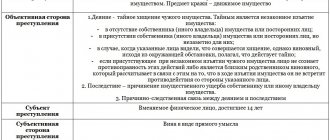Insulting the authorities in accordance with the legislation of the Russian Federation is regarded as a crime. Illegal actions can be directed at an official, head of state, or state symbols. For such a violation, Article 319 of the Criminal Code of the Russian Federation provides for punishment in the form of a fine or correctional labor. In addition, the person who committed the illegal act cannot leave the country.
Article for insulting the authorities with the latest editions for 2020
Actions that are interpreted as an insult to a government official are regulated by Article 319 of the Criminal Code of the Russian Federation, which specifies the amount and terms of punishment. However, until recently, this article and topic were a controversial topic, since on the one hand, Russian citizens cannot be deprived of the opportunity to criticize the actions of the authorities, but the authorities must also be legally protected from attacks on authority.
Important! The head of state is regarded as his symbol, so insulting the president is undoubtedly different from insulting a private individual and is equivalent to desecration of state symbols.
In practice, until the beginning of 2021, Article 319 of the Criminal Code of the Russian Federation on insulting authority was practically not used in practice. Officials fought back based on an article on libel or an article on protection of honor and dignity. The situation changed in March 2019, when the Russian President signed a law allowing to block Internet resources if they contain materials that directly insult government officials, the president, or state symbols.
Important! Corresponding changes were also made to the Code of Administrative Offences. In accordance with the new edition, the fine ranged from 30 to 100 thousand rubles, for a repeated violation - up to 200 thousand rubles and up to 1.5 million rubles if the information led to the death of a person or to unrest.
According to the authors of the legislative initiative, the package of laws contributes to the dissemination of false information, as well as information that offends public morality, the state, and official state signs and symbols.
Publications
A bill has been introduced to the State Duma introducing administrative liability for the dissemination on the Internet of materials that express “in an indecent form, obvious disrespect” for the Constitution, the state, official state symbols, government bodies of the Russian Federation and society. RAPSI studied international experience in legislative protection of state institutions and symbols, highlighting the most interesting examples from different continents in a special infographic.
Austria
Insulting state symbols
Art. 248(2): Insulting the flag of a state or federal subjects, the national emblem and anthem during an official or public event – imprisonment for up to 6 months or a fine of up to 360 DNT. DNOT - the daily wage rate is set separately and ranges from 4 to 5,000 euros, depending on many factors, including the financial condition of the offender.
Insulting the head of state
Slander and insult of civil servants and the president are not separately stated and are punished in the same way as insulting any citizen. The only difference is that senior officials are entitled to special legal proceedings according to their status.
Art. 117 of the Austrian Criminal Code: Defamation of a person – imprisonment for up to 6 months or a fine of up to 360 daily wages (DWN). Defamation spread by media means imprisonment of up to 1 year or a fine of up to 760 DNT.
Art. 115 of the Austrian Criminal Code: Insulting, ridiculing, threatening in the presence of at least 3 other people - TOR up to 3 months or a fine of up to 180 DNT.
Art. 297 of the Austrian Criminal Code: False accusation of failure to perform official duties, entailing criminal prosecution - imprisonment for up to 1 year or a fine of up to 720 DNT. False accusation of a criminal offense punishable by up to 1 year in prison - imprisonment from 6 months to 5 years.
Azerbaijan
Insulting the head of state
Article 323.1 of the Criminal Code of Azerbaijan “Discrediting or humiliating the honor and dignity of the head of the Azerbaijani state - the President of the Azerbaijan Republic in a public speech, publicly displayed work or the media” applies “to publications and demonstrations on the Internet.”
For these actions, punishment is established in the form of a fine in the amount of 500-1000 manats (about 300-600 dollars), correctional labor for up to two years, or imprisonment for a period of two years.
The new part 323-1 of the Criminal Code of Azerbaijan establishes that “if the actions provided for in Article 323.1 are distributed on Internet information resources using fake names, profiles or accounts, then punishment will be applied in the form of a fine in the amount of 1000 to 1500 manats or in the form imprisonment for a term of up to three years."
Belarus
Insulting the head of state
Article 368 of the Criminal Code of Belarus establishes that public insult of the President of the Republic of Belarus is punishable by a fine, or correctional labor for up to two years, or arrest for up to six months, or restriction of freedom for up to two years, or imprisonment for the same term.
The same action, committed by a person previously convicted of insult or slander, or connected with an accusation of committing a grave or especially grave crime, is punishable by a fine, or correctional labor for up to two years, or restriction of liberty for a term of up to three years, or imprisonment. for the same period.
At the same time, public insult of a government official in Belarus constitutes an independent crime and is regulated by Article 369 of the Criminal Code of Belarus: public insult of a government official in connection with the performance of his official duties is punishable by community service, or a fine, or correctional labor for up to two years, or arrest for a term up to six months, or restriction of freedom for up to three years.
Belgium
Insulting institutions of power
Not regulated.
But libel and defamation against “constitutional bodies” are criminally punishable (the same parameters as insult to personality). Art. 446 of the Belgian Criminal Code: imprisonment from 8 days to 12 months or a fine from 26 to 200 euros, if the insult is published in writing or through an image, as well as in the presence of several people in a non-public place, but open to the public.
Also Art. 275 and 277 of the Belgian Criminal Code: criminal prosecution for insulting constitutional bodies and members of these bodies with words, threats, gestures, etc. in the physical presence of these persons in the performance of official duties - imprisonment from 15 days to 6 months or a fine from 50 to 300 euros . The punishment is increased if the crime is committed during a session of the Chamber or court - imprisonment from 2 months to 2 years or a fine from 200 to 1000 euros.
Insulting senior officials is punishable under Art. 276 of the Criminal Code of Belgium – imprisonment from 8 days to 1 month and a fine from 26 to 200 euros.
Insulting the head of state/head of government
Art. 1, Law on Offenses against the King of April 6, 1847: insulting the king in any way, including text or image distributed publicly - imprisonment from 6 months to 3 years and a fine of up to 3,000 euros.
As well as deprivation of political rights for a period of 2 to 5 years in accordance with Art. 42 of the Belgian Criminal Code.
Article 2 of the Law on Crimes against the King of April 6, 1847: insulting members of the royal family - TL from 3 months to 2 years and a fine of up to 2000 euros.
Germany
Insulting state symbols
Art. 90a of the German Criminal Code: insult or malicious expression of contempt for Germany, its national colors, flag, coat of arms - fine or imprisonment for up to 3 years.
Fines for a criminal offense are calculated on a “daily basis” - from 1 to 30,000 euros per day and multiplied by the number of days: from 5 to 360 days. The financial status of the perpetrator is taken into account.
(2) Anyone who removes, destroys, damages, renders unusable or renders unrecognizable a publicly displayed flag of the Federal Republic of Germany or one of its States or a symbol of the state sovereignty of the Federal Republic of Germany or one of its States publicly displayed by an authority or commits offensive actions towards them.
Insulting the head of state/head of government
Art. 90 of the German Criminal Code: public insult of the president - imprisonment from 3 months to 5 years, with deliberate defamation with the aim of damaging the reputation of the president and the state itself - a minimum term of imprisonment of 6 months. Prosecution under this article is initiated only with the approval of the President.
(3) The penalty is imprisonment for a term of up to five years or a fine if the perpetrator intentionally acts against the integrity of the Federal Republic of Germany or its constitutional foundations.
Israel
Insulting state symbols
Israel Flag and Emblem Law 2021: Flag burning is punishable by up to 3 years in prison or a fine of up to $15,000. The court also has the discretion to deprive the defendant of certain government benefits for up to 6 years.
Canada
Insulting the head of state/head of government
Art. 61 of the Criminal Code of Canada: uttering or publishing libel, as well as conspiracy to undermine the government of the ruler - imprisonment up to 14 years.
Netherlands
Insulting the head of state
Public insult of the monarch - imprisonment for up to 5 years or a fine.
Public insult of the monarch's wife, their first heir, his wife or regent - imprisonment for up to 4 years.
Poland
Public insult of the president – imprisonment for up to 4 years.
Art. 236 of the Criminal Code of Poland: Insulting a civil servant during his service and in connection with his official duties - TL up to 2 years or a fine.
Art. 273 of the Polish Criminal Code: Public insult or ridicule in the press and media of the Polish people, the Polish Republic or its political system - imprisonment from 1 to 10 years.
In this country, insulting foreign heads of state is prosecuted - in Poland, a case was opened in connection with insulting the Pope, because he is the head of the Vatican.
USA
Insulting state symbols
At the federal level, there are no provisions regarding insulting state symbols or images of officials. Some states have retained regulation of some forms of criminal defamation—all of which only cover insults to individuals, not public figures or symbols.
Finland
Insulting state symbols is not regulated, except for insulting the flag, for disrespectful attitude to which (as well as damage or removal from a public place a fine is imposed under Article 8 of the Finnish Flag Law) the amount of the fine is not specified.
Insulting the head of state/head of government
Not regulated. At the same time, the general provisions on insulting a person or spreading slander are regulated by Art. 24(9) of the Criminal Code of Finland and entail a fine or, in aggravated circumstances, imprisonment for up to 2 years. Aggravating circumstances are considered to be the infliction of “serious suffering or specific significant damage” to a person (Article 24(10) of the Finnish Criminal Code). Criminal fines are calculated as “daily fines”, i.e. the established amount of the daily fine is multiplied by the number of days from 1 to 120 and depends on the specific financial situation of the accused.
France
Insulting state symbols
Art. 433-5-1 of the French Criminal Code: serious insult to the national anthem or flag during a demonstration organized or approved by public authorities - a fine of up to 7,500 euros and imprisonment of up to 6 months in the case of group participation.
Insulting the head of state/head of government
Art. 30-31 of the Law on Freedom of the Press of July 29, 1881: criminal insult - fine up to 45,000 euros. Additionally, non-public grave insult in the form of words, gestures, threats, texts or images is stipulated - a fine of up to 7,500 euros and, in special cases, imprisonment of up to 1 year.
Türkiye
Insulting state symbols
Art. 300 of the Turkish Criminal Code: insulting the flag by tearing, burning or similar action - imprisonment from 1 to 3 years. This applies to any image with a white crescent and star on a red background, which is a symbol of the sovereignty of the Turkish Republic (Article 300(1))
Art. 300(2) of the Turkish Criminal Code: public insult of the anthem - imprisonment from 6 months to 2 years.
Art. 300 (3) of the Turkish Criminal Code: when insults are committed by Turkish citizens abroad, the punishment is increased by one third.
Art. 341(1) of the Turkish Criminal Code: public insult of a foreign flag or other symbol - imprisonment from 3 months to 1 year upon complaint accordingly. states.
Art. 125 of the Turkish Criminal Code: insulting an official regarding his official duties orally, in writing or through visual media - imprisonment for at least 1 year. If an insult is inflicted on a committee member, then it extends to all committee members and a compound punishment is applied.
Insulting the head of state/head of government
Art. 299 of the Turkish Criminal Code: imprisonment from 1 to 4 years, if committed in public, the punishment increases by one sixth.
Japan
Insulting state symbols
Insulting the flag of Japan is not regulated, but insulting the symbols of any state is prohibited.
Art. 92(4) of the Japanese Criminal Code: any defamation of the flag or other symbol of a foreign state is prohibited and is punishable by a fine of up to 200,000 yen or imprisonment with forced labor of up to 2 years upon a complaint from a foreign state.
Insulting the head of state/head of government
Art. 230-2 of the Japanese Criminal Code: the publication of a fact that has been recognized by a court as true is not considered an insult. Moreover, in general, defamation of a person, regardless of the truth of the published facts, is punishable by imprisonment of up to 3 years and a fine of up to 500,000 yen (Article 230).
Read our analysis for an analysis of all pressing issues on the topic of protecting institutions of power, state symbols and society on the Internet with expert answers.
Experts' comments on the bill and foreign judicial practice are presented in a special block on the RAPSI website.
Lyudmila Klenko, Radoslav Rudnev
Comments on the article
Lawyers draw the attention of Russian citizens to the following innovations:
- on the Internet it is prohibited to disseminate information in an indecent form that bears clear signs of aggression and humiliation of society, the state and government officials;
- the offense is interpreted as petty hooliganism;
- administrative liability applies to individuals over 16 years of age;
- The decision to block Internet resources is made by the Prosecutor General's Office.
Important! You can criticize the authorities, but without indecent expressions and outright aggression. The amendments primarily concern Russian citizens who lead an active life on social networks, run telegram channels, and write news reviews.
It is necessary to understand that a fine is imposed only in relation to materials that meet three requirements:
- the message is presented in an indecent form;
- the form of presentation of information offends the morality of a particular person or society;
- disrespect for the state, its symbols, and government officials is manifested.
No one deprived people of the right to express their point of view about the work of the State Duma, the president of the country, criticize high taxes and low wages, speak out about social injustice, the organization of the education system and medicine. If the information is presented in a cultural manner, there is no talk of any fine or blocking of an Internet resource.
Important! If it is proven that the information contains false data, in this case the author may be charged under another article - libel.
In this law, article of the Criminal Code of the Russian Federation, there is no definition for an indecent form of presenting information. The decision on which message is considered indecent is made by the court and a special examination. However, other laws have articles on punishment for providing information in an indecent manner. It is enough to analyze judicial practice and it becomes clear what is considered unacceptable for publication on the Internet. By the way, swearing is not always regarded as an insult. It is important to prove that the message was written with a specific purpose - to humiliate dignity, to insult. If swearing is used simply to express one’s thoughts, but without malicious intent, another article applies - on the prohibition of using swearing in public places.
Important! Quite often, the authors of offensive posts refer to the fact that they used quite literary words in the message, for example, fool, kike, pig. However, the court does not take this explanation into account, since in this case the word was used to address a specific person with the aim of humiliating and insulting him.
Internet resources are blocked according to a certain algorithm:
- The Prosecutor General or his deputies contact Roskomnadzor. Only these officials have the right to take such an initiative;
- Roskomnadzor demands the provider to block the resource;
- the provider demands that the site owner delete the information, the author has exactly 24 hours from the date of the request to do this;
- If after the allotted time the information is not deleted, access to the resource is limited and resumed only after the post or information is deleted.
Important! A court decision is not needed for such blocking of Internet resources.
Signs of abuse
Insult in this case is classified as a negative assessment of a person, which entails humiliation of the honor and dignity of the individual and undermines the respect for the victim of both other persons and his respect for himself.
It is also expressed in behavior that deviates from generally accepted moral norms. A crime can be expressed verbally, in writing or by action.
An important aspect is the presence of at least one outsider who does not belong to the same authority as the victim. Only under this condition can an insult be considered public.
A crime is considered committed at the moment it is inflicted on the victim, or at the moment when the victim learns about the insult from third parties.
At the same time, it is necessary to distinguish the elements of the crime under the articles “Insulting a representative of authority” and “Hooliganism”.
In the second case, the harm is caused to society as a whole; there may be no specific victim. Article 319 covers only actions committed against a specific government representative.
Tips on where to turn if the site turns out to be fraudulent.
And here are the features of bankruptcy of a municipal unitary enterprise.
Insulting the President
Since the entry into force of the new law, as well as amendments to the Code of Administrative Offences, more than 50 cases have already been opened, more than half of which relate to insulting the president of the country. In each case regarding disrespect for the head of state, a guilty decision was made to pay a fine.
Important! In the summer of 2021, the Ministry of Internal Affairs sent methodological recommendations to police officers, which stated that protocols are drawn up only if the public statement contained obscenities, indecent images of a pornographic nature, or unacceptable comparative images were used. The list of objects of ridicule includes the head of the country, state symbols, the State Duma, the Federation Council, the courts, and the government.
How to prove guilt of insult?
Turning yourself in in such a situation is, with a high degree of probability, simply impossible . At the same time, such offenses are rarely carried out by accident, when the guilty person insulted the president, without assuming the illegality and criminal liability of his actions.
If everyone who insults the president on the Internet were brought to justice, half of the users of the global network would have received criminal records long ago.
Cases are initiated only against those citizens who pose a particular risk to the stability of the country and the political system.
Screenshots of posts on social networks, videos or audio recordings with disrespectful statements are most often used as evidence. When such irrefutable evidence is in hand, there will no longer be an opportunity to avoid responsibility.
In 2021, there were no precedents for criminal cases of insulting the president of the country . This crime is generally very rare, perhaps due to the fact that the president is out of reach for citizens.
According to Art. 319 of the Criminal Code of the Russian Federation, most of the offenses involve police officers as victims in the case, because they are the ones who most often interact with the population.
In Russia there is currently no separate law that would regulate offensive statements addressed to the head of state. These acts are subject to qualification under Art. 319 of the Criminal Code of the Russian Federation.
However, since 2021, negotiations have been underway to adopt a special legislative act that would protect the president from disrespect from citizens. According to experts, it is likely that this law will be adopted in the country in the near future.
Arbitrage practice
In cases of insult to authority, courts make two types of decisions. In the first case, all charges of committing a crime against the accused are dropped due to the reconciliation of the parties. In addition, the ban on leaving the country is cancelled. Here are a few such decisions: No. 1-177/2017, No. 1-705/2017, No. 1-860/2017, No. 1-864/2017.
The second category of decisions is accusatory. The court finds the defendant guilty and orders a fine to be paid to the state. The size is determined by the degree of insult. Also, after the verdict is passed, a preventive measure of not traveling abroad and proper behavior comes into force.
Thus, in the Russian Federation it is possible to criticize the authorities and it is not even prohibited to express your opinion about the work of government bodies. Expressing a negative opinion is a kind of feedback between the people and government officials. However, the law stipulates that even negative assessments must be expressed intelligently, without insults or humiliation. No one abolished from the Constitution the right of citizens to freedom of speech, as well as the dissemination of information. If the criticism is constructive and true facts are presented, no one has the right to impose fines on the author or block the Internet service. Claims arise exclusively to the wording and form of statements.
source:
Responsibility
The punishment is a fine of 40 thousand rubles. or in the amount of the total income of the convicted person for a period of up to three months, or compulsory work for a period of up to 360 hours, or correctional work for a period of up to 1 year.
Mitigating circumstances may be: awareness of guilt, remorse for what they have done, family circumstances, lack of prior criminal record, etc.
Aggravating circumstances are the presence of the convicted person under the influence of alcohol or drugs at the time of committing the crime, an existing criminal record, in particular under Article 319, additional criminal acts or attempts to commit such, simultaneously with insult.
Thus, there is no separate article “Insulting the President” in the legislation of the Russian Federation. This offense is most often interpreted as “Insulting a representative of authority.”
For such actions in Russia there is criminal liability; the fate of the offender will be determined by the court at the request of the injured party. Liability is determined by the Criminal Code of the Russian Federation.
The most correct thing for a worthy citizen of the Russian Federation would be to refrain from harsh statements towards government bodies and, in particular, the President of the Russian Federation.
Corpus delicti
The objective side is social relations, where it is impossible to use destructive forms of communication. Because this can lead to a rupture in the system.
Objective characteristics - uncivil phrases that were directed at the president should be addressed specifically to the head of state personally.
The subject is a legally capable citizen who is over 16 years old;
The subjective side is the motives for the offense, direct intent, guilt of the individual.
The crime will be considered completed when negative statements are made against the President. It is worth noting that in other countries, for example, in the USA, Ukraine or Dagestan, liability is also provided for such actions.
Features of the offense
Insulting a sitting head of state is different from humiliating an ordinary citizen. Indeed, in the case of the president, angry and indecent words can discredit the current system and the activities of the official. This may also lead to disruptions in the activities of government agencies.
That is why the law is more strict in cases where the honor and dignity of the head of the country is affected. That is why insult is unacceptable, even if a person has reasons for it. In any case, dissatisfaction can be expressed in cultural form.
Let us note that a bill is currently being prepared for the State Duma, according to which they want to impose a separate punishment for insulting the president. It implies imprisonment from three to six years. But at the moment it has not yet been adopted, so a criminal article is in force.
What may be mitigating and aggravating circumstances?
Each situation is individual, so you will need to take the circumstances into account. They can either soften the sentence or, conversely, tighten it. It depends on them how serious the punishment will be.
Important! Mitigating circumstances include the fact that the citizen is committing such an offense for the first time. But if this is not the first time he insults a government official in public, then the sentence may become heavier.
Also, the circumstance when the citizen was drunk during the humiliation can worsen the punishment. The fact that this was done for fun and had no motive is also negative.
It is impossible to say with certainty what the punishment for criminal actions will be. But it is worth understanding that the violator has the right to be convicted under a criminal article. Therefore, it is better to refrain from insults, even if there are reasons for this. Otherwise, the individual will have a criminal record.









